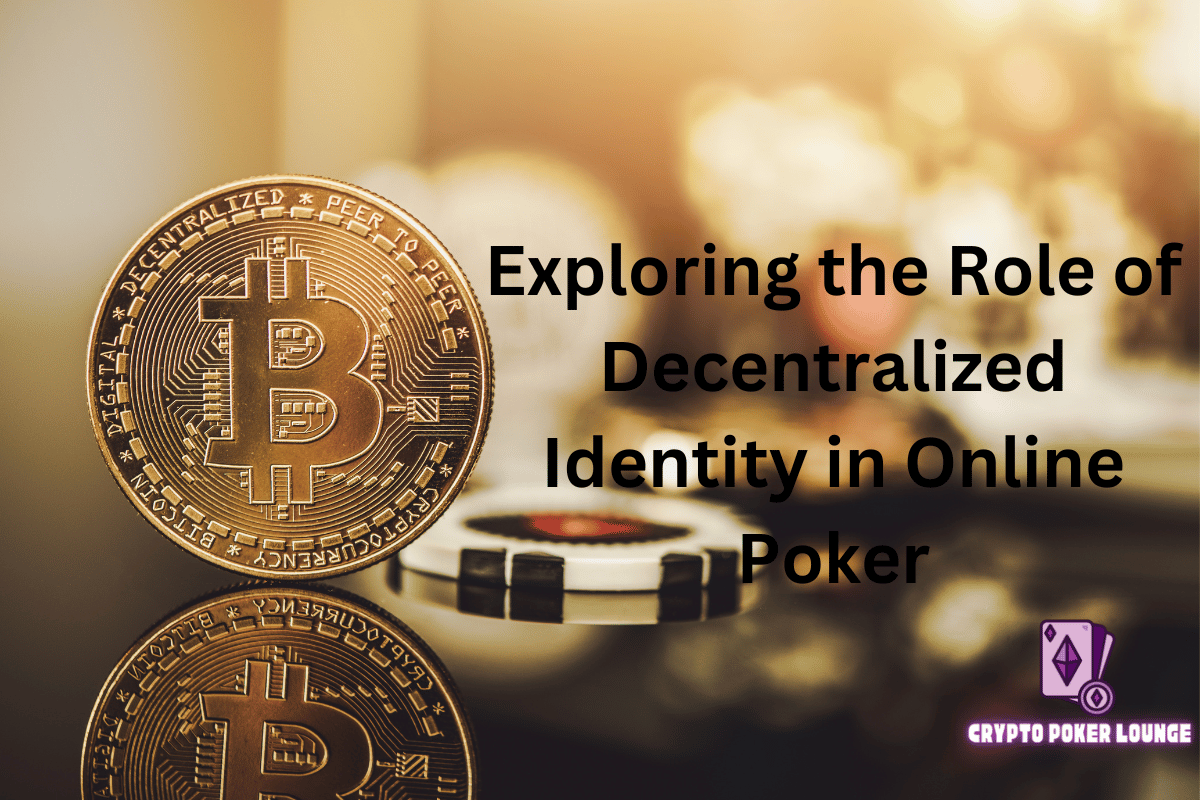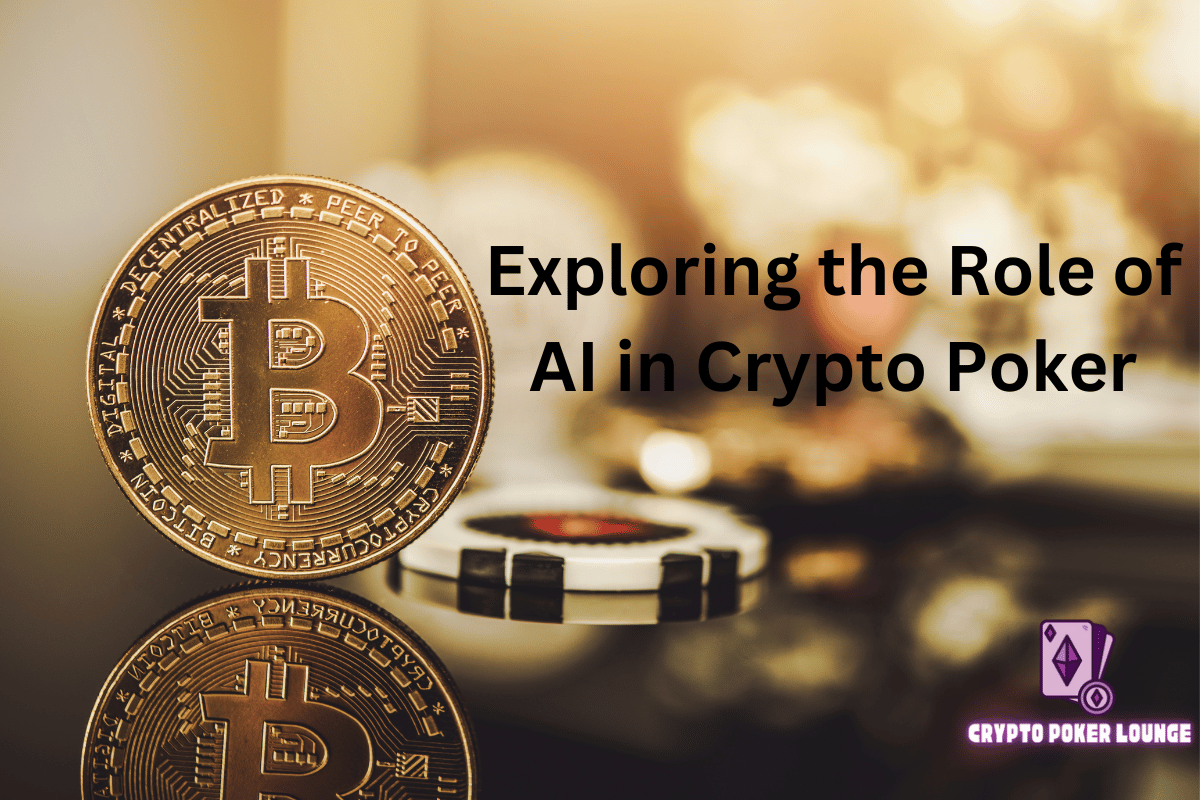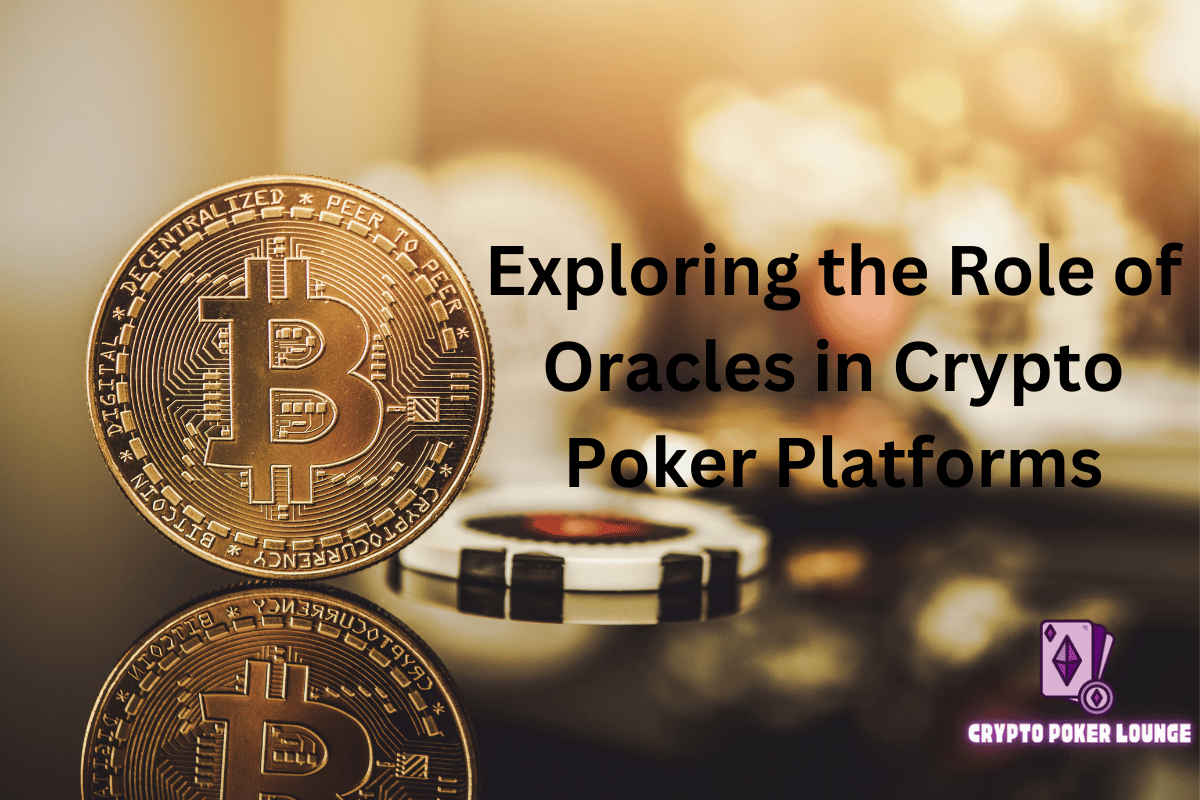
In the realm of online poker, the idea of safeguarding one’s identity is paramount, or so we’ve been led to believe. But what if there was a way to revolutionize this concept entirely?
Imagine a world where trust and security are no longer mere afterthoughts but integral components of every hand dealt. Intrigued by the possibilities?
Stay with us as we explore the transformative potential of decentralized identity in the realm of online poker.
The Significance of Online Poker Security
Online poker security plays a critical role in ensuring the integrity and trustworthiness of digital card games. With the rise of online poker fraud and identity theft incidents, players and platforms face increasing risks. Fraudulent activities such as collusion, account hacking, and unfair gameplay threaten the fairness of online poker environments. Identity theft poses a significant danger as personal and financial information can be compromised, leading to severe consequences for individuals.
To combat online poker fraud and identity theft effectively, robust security measures are imperative. Encryption technologies safeguard sensitive data during transmission, preventing unauthorized access. Multi-factor authentication adds an extra layer of protection, reducing the risk of account breaches. Continuous monitoring for suspicious activities helps detect and mitigate potential threats promptly. Additionally, implementing strict verification processes for user registration can deter identity theft attempts.
Understanding Decentralized Identity Technology
Embracing decentralized identity technology revolutionizes the landscape of digital authentication and verification processes. Identity management becomes more secure and efficient with the implementation of decentralized systems. Traditional methods of user authentication often rely on centralized servers, making them vulnerable to data breaches and unauthorized access. Decentralized identity technology shifts this paradigm by empowering users to have more control over their personal information.
By utilizing blockchain technology, decentralized identity solutions offer a more robust framework for managing identities. Each user has a unique digital identity stored on the blockchain, enhancing security and privacy. Through cryptographic techniques, users can securely authenticate their identities without relying on third-party intermediaries. This peer-to-peer authentication process eliminates the risks associated with centralized identity management systems.
Furthermore, decentralized identity technology enables seamless verification processes across various platforms. Users can access online poker platforms securely and efficiently, knowing that their identities are protected. The decentralized nature of these systems enhances trust and transparency, setting a new standard for identity management in the digital age.
Benefits of Blockchain in Poker Identity
How can blockchain technology enhance the security and integrity of online poker player identities? Blockchain benefits in poker identity verification are significant and impactful. Here are some key advantages:
- Immutability: Once identity information is recorded on the blockchain, it can’t be altered or tampered with, ensuring the integrity of player identities.
- Transparency: Blockchain allows for transparent verification processes, giving players confidence in the legitimacy of their opponents’ identities.
- Security: The decentralized nature of blockchain technology makes it highly secure, reducing the risk of identity theft or fraud in online poker.
- Efficiency: Identity verification processes can be streamlined and automated through smart contracts on the blockchain, saving time and resources for both players and platforms.
Ensuring Fairness and Transparency in Games
When looking at ensuring fairness and transparency in online poker games, key aspects include:
- Implementing fair RNG algorithms,
- Safeguarding player data, and
- Maintaining immutable game records.
These elements are crucial in creating a trustworthy gaming environment where players can have confidence in the integrity of the platform.
Fair RNG Algorithms
Implementing reliable Fair RNG Algorithms is crucial for maintaining trust and integrity in online poker games. These algorithms are fundamental in ensuring fairness verification and transparency throughout gameplay.
When designing Fair RNG Algorithms, considerations such as statistical randomness, seed generation, and cryptographic techniques are paramount. To enhance player confidence, implementing periodic audits by independent third parties can further validate the algorithm’s integrity.
Utilizing blockchain technology can also offer a tamper-proof solution for storing RNG seed values, adding an extra layer of security. By prioritizing the development and implementation of robust Fair RNG Algorithms, online poker platforms can uphold fairness and credibility, fostering a more trustworthy gaming environment for all players.
- Statistical randomness
- Seed generation
- Cryptographic techniques
- Independent audits
Player Data Protection
To safeguard the integrity of online poker games, ensuring fairness and transparency, robust measures for player data protection must be meticulously implemented. Encryption protocols play a vital role in securing sensitive player information, ensuring that data remains confidential and inaccessible to unauthorized parties.
Additionally, stringent data security measures help prevent breaches that could compromise the fairness of the game. User authentication mechanisms are crucial for verifying the identity of players, reducing the risk of fraud and ensuring that only legitimate individuals participate in games.
Privacy concerns are addressed through the implementation of strict protocols that govern the collection, storage, and sharing of player data, fostering trust and confidence among participants in online poker platforms.
Immutable Game Records
Ensuring fairness and transparency in online poker games is achieved through the establishment of immutable game records. By leveraging decentralized identity technologies, game verification becomes more robust, enhancing transparency for all players involved. This innovative approach revolutionizes the online poker industry by providing a secure and tamper-proof system for tracking game outcomes.
Here are key elements that contribute to the integrity of immutable game records:
- Timestamped logs of all game actions
- Cryptographic hashing of game data for verification
- Public accessibility to game records for scrutiny
- Automatic updates to all players’ records in real-time
These measures not only ensure fairness but also elevate trust among players, ultimately enhancing the online poker experience for all participants.
Privacy Enhancement Through Decentralization
When considering the points of data ownership rights, enhanced user anonymity, and secure transaction verification in the context of decentralized identity in online poker, we recognize the potential for significant privacy enhancements.
By asserting data ownership rights, users can better control their personal information, leading to increased trust in online platforms.
Enhanced user anonymity ensures that individuals can participate in online poker games without compromising their privacy, while secure transaction verification mechanisms bolster the overall security of the platform.
Data Ownership Rights
By decentralizing identity data ownership rights in online poker, players can enhance privacy through a more secure and transparent framework. When players have control over their data and ownership rights, the system becomes more player-centric, fostering trust and confidence.
Here are some key aspects to consider in this context:
- Data Control: Empowering players to have full control over their personal information.
- Ownership Rights: Ensuring that players own their data and have the authority to manage it.
- Player Authentication: Implementing robust methods to verify the identity of players securely.
- Secure Verification: Utilizing encryption and blockchain technology to enhance the security of data verification processes.
This approach not only prioritizes player privacy but also establishes a foundation for a more trustworthy online poker environment.
Enhanced User Anonymity
Decentralizing identity data ownership in online poker not only empowers players but also enhances privacy through increased user anonymity. By shifting control of personal information from centralized entities to individual users, decentralized identity systems offer a higher level of user control and identity protection.
In online poker, where the need for discretion is paramount, enhanced user anonymity provided by decentralized identity solutions can significantly improve player confidence and security. With the elimination of a single point of failure that could compromise user data, players can engage in games with a reduced risk of identity theft or privacy breaches.
This heightened level of privacy not only fosters trust among players but also sets a new standard for secure and confidential online poker experiences.
Secure Transaction Verification
Enhancing the security of online poker transactions through decentralized verification not only ensures privacy but also establishes a robust foundation for trust and reliability in player interactions. When considering transaction privacy and secure authentication in online poker, the decentralized identity framework plays a crucial role.
- Immutable transaction records provide transparency.
- Cryptographic protocols ensure secure authentication.
- Peer-to-peer verification enhances trust among players.
- Anonymized transaction details protect player privacy.
Building Trust in Online Poker Communities
Establishing a robust framework for accountability and transparency is crucial in fostering trust within online poker communities. Community reputation plays a significant role in determining the credibility of players and platforms in the online poker ecosystem. By implementing mechanisms for identity verification, online poker sites can enhance trust among participants. Identity verification processes help ensure that players are who they claim to be, reducing the risk of fraudulent activities and enhancing the overall integrity of the community.
Moreover, transparency in online poker operations, such as revealing algorithms and ensuring fair gameplay, is essential for building trust. Players are more likely to engage in online poker games when they have confidence in the fairness of the system. Transparent practices also contribute to the establishment of a positive reputation for online poker platforms, attracting more players and fostering a sense of community.
Implications for Player Verification Processes
Player verification processes in online poker hold significant implications for ensuring the integrity and security of the gaming environment. Streamlined verification processes can greatly enhance the player experience by reducing wait times and ensuring fair play.
Some key implications include:
-
Efficiency: Implementing efficient verification processes can reduce the time players spend waiting to start playing, leading to a smoother onboarding experience.
-
Security: Robust verification procedures help in preventing fraudulent activities and maintaining a secure gaming environment for all participants.
-
Compliance: Ensuring that players are properly verified can help online poker platforms adhere to regulatory requirements and avoid potential legal issues.
-
Trust: By having reliable verification processes in place, players can have increased trust in the platform, leading to a more positive overall gaming experience.
Challenges and Opportunities for Adoption
Addressing the challenges and opportunities for adoption of decentralized identity in online poker requires a strategic approach that considers both technical feasibility and user acceptance. Adoption barriers, such as the need for widespread integration across various online poker platforms and the establishment of industry standards, must be overcome to realize the full potential of decentralized identity solutions. Regulatory concerns, including compliance with anti-money laundering (AML) and know your customer (KYC) regulations, present additional hurdles that necessitate collaboration between technology providers and regulatory bodies.
On the other hand, opportunities for adoption lie in enhancing the user experience through seamless interface design that simplifies the onboarding process and ensures a frictionless gaming experience. By prioritizing user-centric design principles, decentralized identity solutions can offer players a secure and convenient way to verify their identities without compromising their privacy. Leveraging innovative technologies, such as biometric authentication and secure multi-party computation, can further bolster the adoption of decentralized identity in online poker, paving the way for a more transparent and trustworthy gaming environment.
Future Outlook for Decentralized Poker Identity
Looking ahead, the evolution of decentralized poker identity promises to revolutionize the online gaming landscape, reshaping interactions between players and platforms. As decentralized networks continue to advance, the future outlook for decentralized poker identity shows great potential for enhancing security, trust, and player engagement.
Here are some key aspects to consider:
-
Enhanced Identity Verification: Implementing decentralized identity solutions can streamline the verification process, ensuring that players are who they claim to be without compromising their privacy.
-
Transparent Player Reputation: Decentralized networks enable the creation of immutable player reputation profiles, allowing users to build trust based on their gaming history and interactions within the platform.
-
Improved Security in Poker Tournaments: By leveraging decentralized identity protocols, the integrity of poker tournaments can be safeguarded against fraudulent activities, creating a fairer gaming environment.
-
Dynamic Player Interaction: Decentralized poker identity introduces new avenues for personalized player interactions, offering tailored experiences based on individual preferences and playing styles.
Frequently Asked Questions
How Can Decentralized Identity Technology Improve Player Verification Processes in Online Poker?
Decentralized identity technology enhances security and streamlines player verification in online poker. It minimizes fraud risks by securely storing player data on the blockchain. Verification becomes efficient and reliable, ensuring a trustworthy gaming environment for all.
What Are Some of the Challenges That Online Poker Communities May Face When Adopting Decentralized Identity Solutions?
When adopting decentralized identity solutions, online poker communities may encounter challenges with regulatory compliance due to varying global laws. Ensuring data security becomes crucial to protect player information and maintain trust within the ecosystem.
Can Blockchain Technology Help Ensure Fairness and Transparency in Online Poker Games?
Like a powerful magnifying glass, blockchain technology can illuminate the inner workings of online poker games, ensuring fairness and transparency. Its decentralized nature enhances trust in the gameplay, safeguarding against fraudulent activities.
How Does Decentralization Enhance Privacy for Online Poker Players?
Decentralization significantly enhances anonymity and data protection for online poker players. By utilizing blockchain technology, our identities remain secure, transactions are encrypted, and personal information is shielded, ensuring a heightened level of privacy.
What Are the Potential Implications of Decentralized Identity in Online Poker for the Future of the Industry?
Exciting possibilities lie ahead as decentralized identity revolutionizes online poker. Regulatory compliance is streamlined, trustless transactions ensure security, player anonymity is safeguarded, and fraud prevention becomes robust. The industry stands poised for a groundbreaking transformation.
Conclusion
In conclusion, decentralized identity technology in online poker offers a promising solution to enhance security, fairness, and privacy. However, as with any emerging technology, there are challenges to overcome and opportunities to explore.
By embracing blockchain and decentralized systems, the poker industry can revolutionize player verification processes and build trust within the community. The future outlook for decentralized poker identity is bright, but only time will tell if players are ready to embrace this innovative approach.


